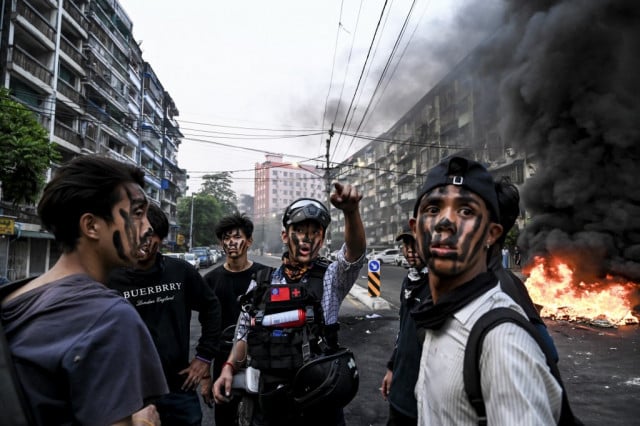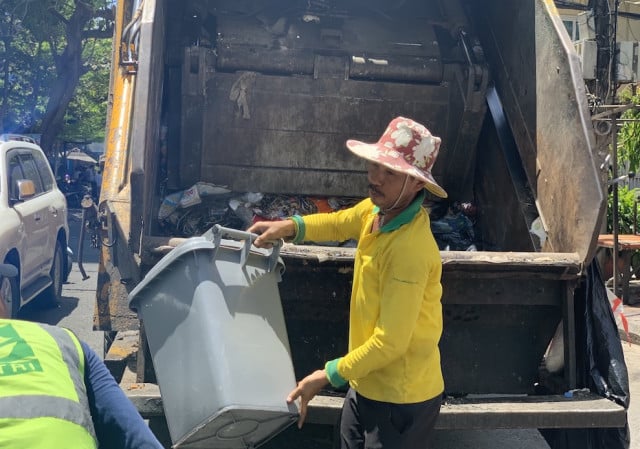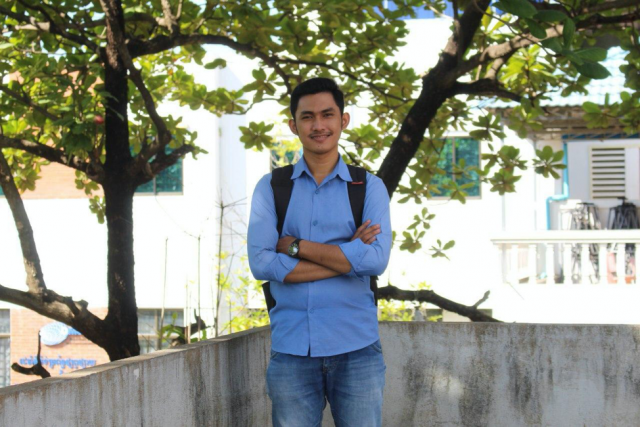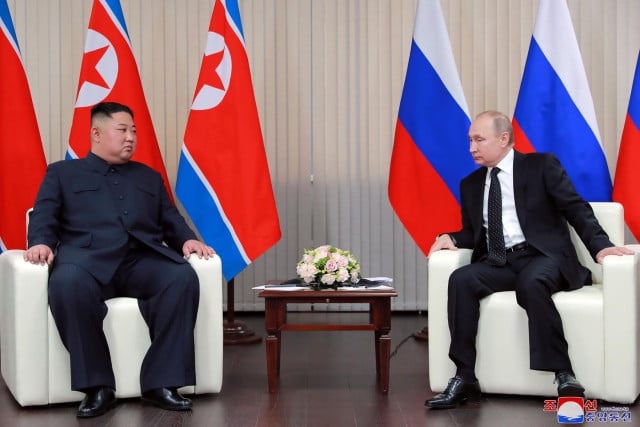UN envoy urges action to prevent Myanmar 'civil war'

- Agence France-Presse
- April 1, 2021 1:51 AM
United Nations, United States | The UN envoy on Myanmar implored the Security Council to take action Wednesday in the Asian nation's escalating crisis, warning of the risk of civil war and an imminent "bloodbath" as the junta violently represses pro-democracy protests.
More than 520 people have died in daily demonstrations since the military overthrew elected leader Aung San Suu Kyi on February 1, halting Myanmar's decade-old experiment in democracy.
"I appeal to this Council to consider all available tools to take collective action and do what is right, what the people of Myanmar deserve and prevent a multi-dimensional catastrophe," special envoy Christine Schraner Burgener told the closed-door session, according to remarks obtained by AFP.
She said she remained open for dialogue with the junta but added: "If we wait only for when they are ready to talk, the ground situation will only worsen. A bloodbath is imminent."
Barbara Woodward, the UN envoy from Britain, which requested the meeting, told reporters the Security Council was "united in its condemnation" and was discussing "a range of measures at our disposal."
But China, considered Myanmar's main ally, ruled out sanctions.
"One-sided pressure and calling for sanctions or other coercive measures will only aggravate tension and confrontation and further complicate the situation, which is by no means constructive," China's ambassador, Zhang Jun, told the meeting, according to a statement.
The session came after Suu Kyi's legal team earlier Wednesday said the ousted leader appeared to be in good health despite two months of detention.
Suu Kyi, 75, has not been seen in public since she was deposed but a member of her legal team, Min Min Soe, was summoned to a police station in the capital Naypyidaw for a video meeting with her.
Suu Kyi is facing a raft of criminal charges, and conviction could see her barred from office for life.
- Emergency session -
The coup and the junta's subsequent actions have triggered international condemnation.
Britain called for the emergency meeting after the military dramatically ramped up its use of lethal force against protesters over the weekend.
In another violent escalation, Myanmar's military Saturday launched the first air strikes in Karen state in 20 years after a rebel group seized a military base -- raising fears of a return to armed conflict in the ethnically diverse nation.
"The military's cruelty is too severe and many (armed ethnic fighters) are taking clear stances of opposition, increasing the possibility of civil war at an unprecedented scale," Burgener said.
"Failure to prevent further escalation of atrocities will cost the world so much more in the longer term than investing now in prevention, especially by Myanmar's neighbors and the wider region."
Zhang, the Chinese ambassador, said he wanted Myanmar to "restore peace, stability and constitutional order as early as possible and continue to steadily advance democratic transition."
He also called for the protection of foreign businesses -- a key concern for China, which has seen dozens of its factories torched amid furor against Beijing.
Earlier, a group of ousted MPs from Suu Kyi's National League for Democracy (NLD), who have been working underground against the junta, said they would form "a new civilian government" in the first week of April, without giving further details.
- Mounting bloodshed -
World powers have repeatedly condemned the violent crackdown on dissent and hit junta figures with sanctions, but so far the pressure has not swayed the generals.
The US State Department has ordered the departure of non-essential diplomatic staff and their families from Myanmar, and Japan -- a top donor to the country -- has halted new aid payments.
As well as imposing targeted sanctions, the US also has suspended a trade pact with Myanmar.
Linda Thomas Greenfield, the US ambassador to the United Nations, raised the possibility of action if the military does not step down.
If "they continue the attacks that they were making on civilian populations, then we have to look at how we might do more," she told reporters.
The mounting bloodshed has also angered some of Myanmar's 20 or so armed ethnic groups, who control large areas of territory mostly in border regions.
Three of them -- the Ta'ang National Liberation Army (TNLA), the Myanmar Nationalities Democratic Alliance Army and the Arakan Army -- on Wednesday looked set to join the protesters' fight.
Brigadier General Tar Bhone Kyaw from the TNLA told AFP that all three would end their ceasefire with the military.
"If they continue to kill the people, we have no reason to extend unilateral ceasefire with them," he said.
Two other outfits -- the Karen National Union (KNU) and the Kachin Independence Army (KIA) -- have already stepped up attacks on military and police in recent days.
© Agence France-Presse















